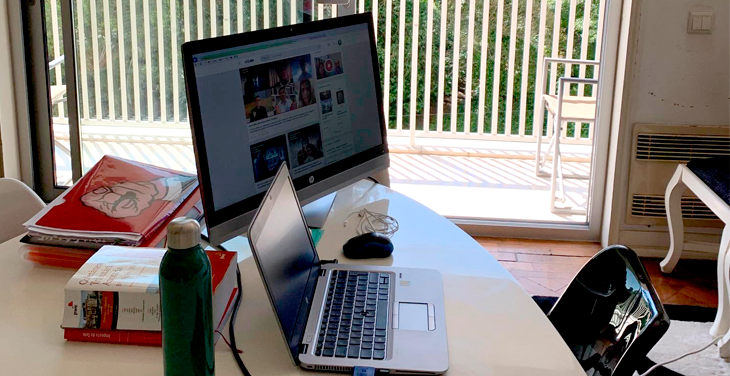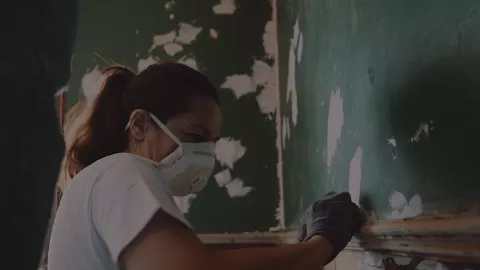Friday, March 13th, 2020. Jorgelita Exposito Blanco adjusts her cat-eye glasses and leaves the office at the end of the day. The sun is setting and the bustle in the streets is visible but, in addition to the typical noise of rush hour, you feel another type of nervousness in the air.
This time, and contrary to what she's been doing so far since she started working at EDP Renováveis, Jorgelita takes the laptop home - company instructions. In Spain, where this is happening, more specifically - the city of Oviedo, the State of Emergency will be declared the following day, due to the severity of the Coronavirus outbreak.
"I was taken by surprise", confesses Jorgelita, "I expected to be able to return to the office on Monday... Then I found myself faced with the urgent need to buy supplies, because there wasn't even milk, and I had to perform this 'heroic act' that the supermarket was going to be today. It was only on Wednesday that I was able to return to the office to fetch my computer screen, documents and other material I needed to organize what I have to do."
That Wednesday, March 18th, Jorgelita returned to an empty office. Some colleagues' belongings were still where they had been left, as if life at the company had been put on hold. The area where EDP's headquarters are located in Oviedo is now taken over by the Military Emergency Unit and the situation that is being experienced here "seems like it came from a movie", according to her. "I felt like I was in the Chernobyl series! There is an absolute silence, a tremendous silence. But on the other hand, we can hear the birds perfectly... sounds that were previously unnoticed and that we now hear easily. Anyway, that's the beautiful side of it all."
People first
Throughout the world, the EDP Group's offices have gone quiet. From Spain to Brazil, from Portugal to the United States, the decision to implement work from home was taken very quickly - in some cases, even ahead of government decisions, just as has happened in São Paulo, Brazil.
"EDP was one of the first companies to implement home office right at the beginning, we will only have quarantine in commerce starting tomorrow, here in Brazil, so EDP is well ahead." The words are from Rodrigo Villafan Landin, EDP Brasil collaborator who, at the time of the interview, had been working remotely for about a week.
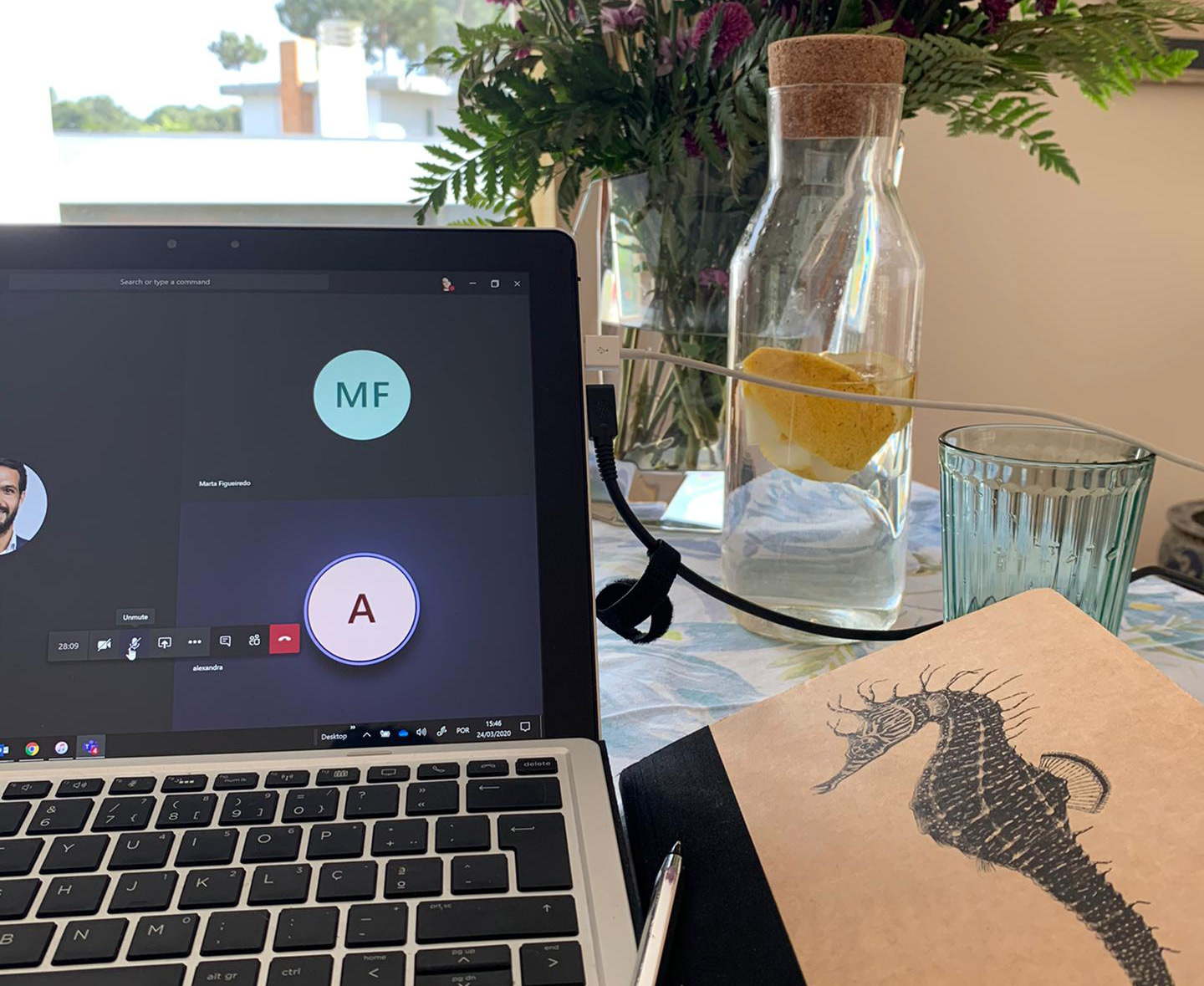
Rodrigo mirrors the general feeling of the people who were 'sent home' in the face of the Covid-19 emergency. The lack of social interaction, not only in personal terms but also in their daily work, is just one of the challenges that workers face. Another is the ability to define boundaries and limits in a single space and time: now no one really knows where 'work' ends and 'home' begins.
There are those who schedule 'virtual lunches', gathering colleagues to eat in front of the computer, and those who don't give up the Friday afternoon socializing, now on video conference. Rodrigo chooses to drink coffee: "We have been using FaceTime a lot, and at least three times a week we get together with colleagues to have a 'coffee time', in which everyone talks about topics other than work... because otherwise, we stay focused all day on work and we cannot differentiate very well when we are working or when we are at home", he says.

Another big challenge is, clearly, having the whole family at home... always. In Portugal, Cláudia Novo (from EDP Global Solutions), admits with a smile that her children are "locked in their room, so that we can have this conversation in silence".
For a successful transition to remote work, Cláudia's first step was to be able to organize routines and all the logistics at home, which includes shopping trips during limited hours, organizing baths, meals, and the children's own studies. The second step was to start to massively use the digital telecommuting tools at her disposal.
The home office
According to Cláudia Novo, her entire team was already very accustomed to using collaborative remote work tools, such as Microsoft Teams, which allows you to make video calls with up to 100 people simultaneously, in addition to the usual chat conversations. "Before we used to only work in Teams from time to time, now we work a lot in Teams. We have been able to keep all our scheduled meetings and our team rituals, such as meetings every two weeks."
This ease in the transition to telecommuting is not a coincidence. A few years ago, the Group has started a process of digital transformation that turned out to be invaluable at this point. In 2017, it started by mapping the digital skills that would be needed in each department, and then training the employees.
Simultaneously, the possibility of allowing workers to perform functions from home was studied. And, in 2019, it was decided to proceed with a pilot project: work remotely once a week, in order to gather knowledge and experiences for the future. This pilot was actually expected to start in April, but reality overrode the plan - in mid-March, 69% of EDP's 12,000 employees worldwide were already working exclusively from home.
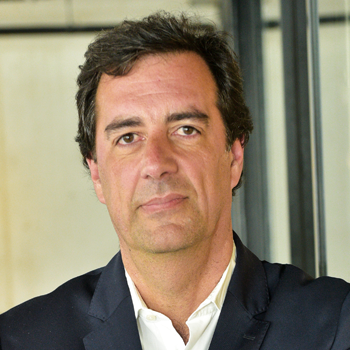
"Everyone is being confronted with the reality of the Coronavirus, which means that telecommuting, which had started at EDP as something voluntary and 'nice to have', has become a 'must have'. So, almost coincidentally, we ended up being much better prepared to face this challenge".
Ferrari Careto, EDP Digital Global Unit
Digital is the new normal
In reality, and as Ferrari Careto argues, "digital is the new normal". There is already a set of tools accessible via the Internet, Office 365 being one of the most important for the Group, because it allows you to send emails, access your calendar, have access to Word, Excel, or Powerpoint online... all through a simple connection to the Internet, and always with the security that is crucial when accessing our systems."
The installation of so-called Virtual Private Networks (VPN) - which emulate the company's internal network on the computers of those who are working remotely - offers an increased degree of security, allowing employees to perform more sensitive day-to-day operations at EDP. According to Ferrari Careto, "in this regard, we had record usage, which we'd never expected: more than 4,000 colleagues connected simultaneously to our networks via VPN."
These are 'details' that, if they had not been previously tested and implemented in a robust manner, would not allow normal maintenance of operations at EDP. This task, performed by the group's Information Technology (IT) operatives, is recognized as crucial by colleagues.

"We are all trying to keep things going. And I would like to salute IT workers who have suddenly made it possible for thousands of people to work from home, using technological resources. It was essential for people like me, who had never used a computer from a distance, to continue to perform their tasks, it's an amazing job".
Jorgelina Exposito Blanco, EDP Renováveis
On the battlefront
But the work at EDP goes far beyond meetings, emails and video conferences. So that all people, inside and outside the company, can maintain a certain normality in their lives, it is necessary to guarantee the continuity of access to an essential resource: electricity. And, interestingly, this is remote work in its purest form: with or without Coronavirus, part of the operations that ensure that electricity reaches where it is needed is always done at a distance. The production of wind power, for example, is managed remotely in dispatch centers. Another example is the maintenance of the electrical network itself, which is also done, in part, remotely.
The same is true with regard to the management of hydroelectric production plants, that is, dams. Vitor Silva is responsible for the Porto Dispatch, where the Remote Control room is located, which controls all of EDP water plants in Portugal. In a single room, 62 dams are controlled and monitored, with 129 generator groups, in shifts that ensure that they are monitored 24 hours a day, every day of the year.
Through specific software, and using various computer screens, professionals perform over a thousand fundamental functions that include the operation and monitoring of dams, in addition to the management of river flows, whose inflow may have to increase or decrease for various reasons, in particular to prevent floods.
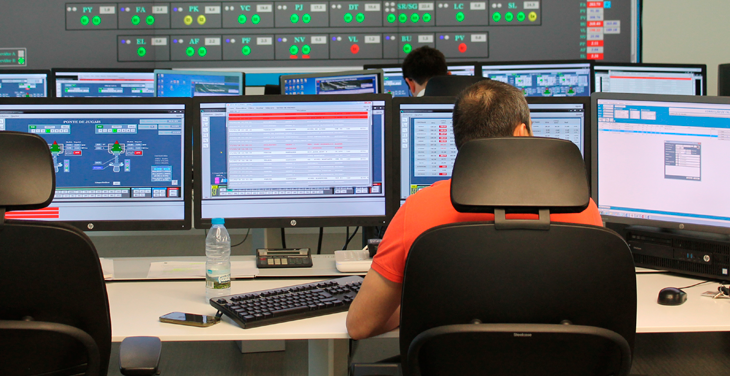
The arrival of the Coronavirus forced major changes. First, behavior, with the disinfection of hands at the entrance, the disinfection of shared equipment, the restriction of access and contacts with the outside. Subsequently, with the reorganization of the teams' work.
Normally, the remote monitoring system is operated by teams of three people, each of whom takes 8h shifts, to ensure continuous monitoring of the dams. In view of the Coronavirus, to minimize the risk of contagion, the teams now have only two people at a time. In addition, it was insured that the operating rooms were interspersed: if one team did a midnight shift up to 8am, the next, which started at 8am, would not enter the same room - it would work in another room. Thanks to this, the first space was cleaned and disinfected when it was vacant.
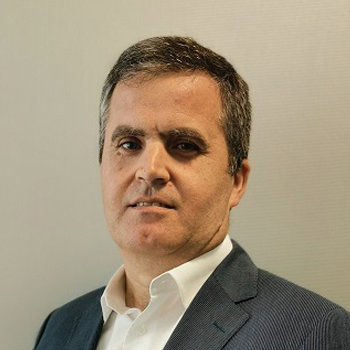
"There were workers who offered to stay in a regime of near isolation, in Régua: they started sleeping in a house next to the remote monitoring building and eating their meals there, assuming most of the shifts".
Vitor Silva, Manager for the Remote Control Center of the Hydroelectric Power Plants
Vitor Silva explains that these colleagues' days off are compensated by teams in Porto that operate alternately from the two rooms. All measures have been taken with the aim of safeguarding these professionals as much as possible, as the energy that reaches the entire country also depends on them.
Being a team player
As an answer to concerns about the physical security of the workers, the Contigency Office determined some support measures. One of them is the availability of holiday allowances in advance (in March), with the possibility of announcing other measures, depending on the evolution of the situation.
Around the world, the Group has joined the fight against Coronavirus. In Portugal, for example, EDP donated 50 ventilators to the NHS; EDP Brasil offered six million reais (more than one million euros) to purchase this equipment. The implementation of other measures to support the population is being planned and implemented. It is still under study.
"In all the interactions I have had with the EDP people, there is an extraordinary feeling of 'being a team player' and of satisfaction", denotes Ferrari Careto. "That's because EDP was one of the first companies in Portugal to take the initiative to massively send people to work from home. There was a great concern for the safety of its employees."
Living life 'by the window'
Now, it's up to the people to try to 'keep sane' at home. Paula Carneiro, Human Resources Director at EDP, mentions the importance of establishing routines: "try not to get out of bed and go to remote work while you are in pajamas, keep your routines and somehow behave as if you are leaving home, but not... ", she jokes.
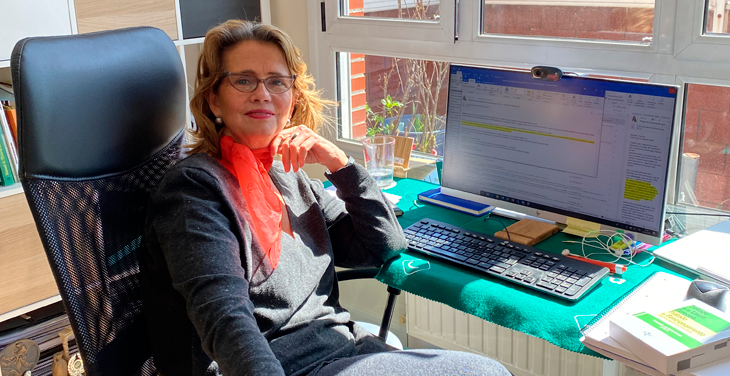
But it is not always easy. "Suddenly there are several people at home, there is daily life, there are children, wives, partners also on calls, and even the dog asks for more time and stays around us asking for treats or barking when something happens!" she says. The truth is that, in just a few weeks, these 'episodes', in which video conferences are interrupted by family members, in a more or less flashy way, have become common, acceptable, and in a way desirable.
Jorgelina corroborates this idea: "Teams has a function that allows you to distort the background in video conferences, so as not to see us inside the house, but nobody does that. Now, we see the pictures that the bosses have on their walls, the sofa on which they sit, their children, and they try very hard not to be disturbed, but we say 'let them come', because we like to see the children and greet them!"
All of this raises an interesting question. Technology, namely telecommuting tools, opened doors (or windows, on the computer) where they did not exist before. Nothing new, but it came to be greatly exacerbated by the imposition of isolation. Social distancing has brought us an unusual closeness, an unprecedented intimacy with people from whom we previously kept a greater distance.
Thanks to digital tools, there is a real sense of togetherness, of being part of a whole - we are all human and fallible. We are experiencing a unique situation and we have to stay apart. The paradox is that we are, at the same time, closer than ever.
As for telecommuting, after this trial by fire, it is a trend that will certainly be reinforced. Paula Carneiro really believes that nothing will return to what it was: "Anyone who still had doubts that it was possible, or found excuses to delay this movement, from now on and with this world test, will realize that it is possible... and that it brings many positive points. I am absolutely sure that nothing will be like it used to be before."
